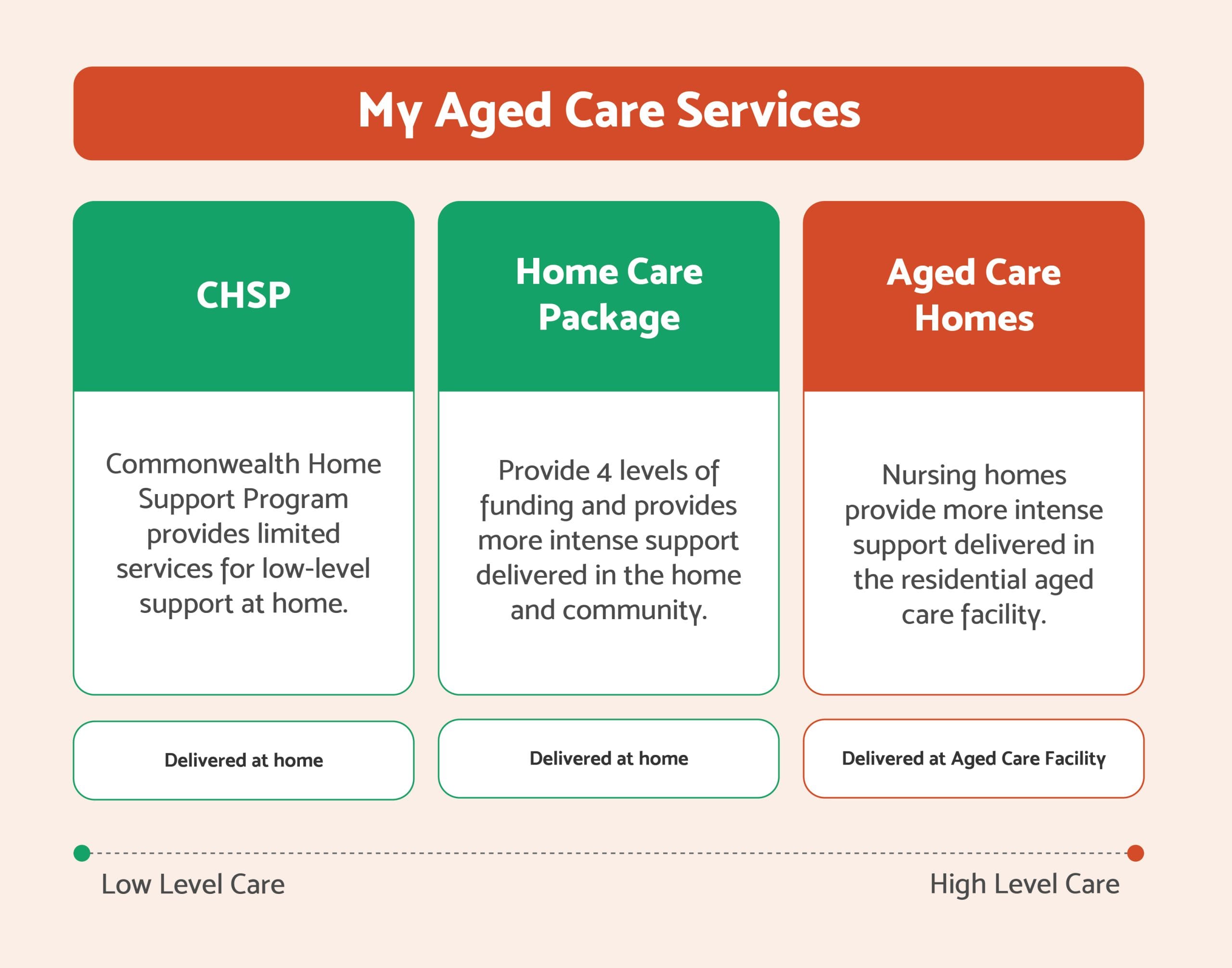Top 7 questions to ask when evaluating home care providers for disability services
Top 7 questions to ask when evaluating home care providers for disability services
Blog Article
The Relevance of Home Care in Impairment Assistance: Exploring NDIS Registered Solutions
Home treatment is a fundamental facet of special needs assistance, specifically within the structure of NDIS signed up services. It provides vital services that foster independence and improve overall lifestyle for people with handicaps. By using personalized help, these services satisfy unique needs and preferences. The performance of home care relies on ongoing interaction with NDIS planners. This vibrant connection discloses much deeper insights into the transformative possibility of customized support. What successes and obstacles arise in this advancing landscape?
Comprehending the Role of Home Care in Disability Assistance
Home treatment plays an essential duty in the assistance of people with handicaps, giving substantial solutions that promote independence and improve high quality of life. It encompasses a variety of aid customized to satisfy the unique requirements of each person, consisting of personal care, family jobs, and mobility assistance. Trained caretakers provide friendship and psychological assistance, promoting meaningful links that deal with social isolation.Furthermore, home care services are designed to adjust as scenarios alter, making certain that individuals receive the appropriate level of care throughout their lives. This adaptability permits the assimilation of new therapies or modern technologies that may emerge. By prioritizing the individual's preferences and regimens, home care equips them to keep control over their everyday activities. Eventually, the duty of home treatment in impairment assistance is necessary, as it not only provides useful assistance but additionally affirms the self-respect and autonomy of those it serves.

Benefits of Personalized Help at Home
Personalized help in your home offers many advantages customized to individual demands - support at home. By developing tailored assistance strategies, caretakers can greatly boost the self-reliance of individuals with handicaps. This approach not only promotes freedom but also fosters a sense of self-respect and self-respect
Tailored Support Strategies
Tailored assistance strategies play a necessary duty in improving the lifestyle for individuals with impairments. These personalized plans are developed to deal with the distinct requirements and preferences of each person, making sure that support solutions align with their particular goals and lifestyle. By involving clients in the planning procedure, customized assistance strategies promote a sense of possession and empowerment. This customized method allows caretakers to offer pertinent assistance, whether it involves daily living activities, social engagement, or ability development. Additionally, tailored plans can adapt to changing scenarios, mirroring the progressing requirements of the individual. Ultimately, this customized support improves not just day-to-day working but additionally psychological health, enhancing the relevance of a customized approach in impairment support solutions.
Improved Freedom Opportunities
People with disabilities profit greatly from personalized help in your home, as it advertises enhanced freedom opportunities. Customized support enables individuals to take part in everyday tasks with greater self-confidence and freedom. Home treatment services can include help with personal care, meal preparation, and home management, making it possible for customers to keep their regimens and choices. This individualized strategy cultivates a sense of control, encouraging people to make choices that show their one-of-a-kind requirements and goals. Additionally, the comfort of home develops a familiar environment, lowering stress and anxiety and improving psychological well-being. Generally, personalized help not only sustains vital day-to-day tasks however likewise cultivates a much more independent lifestyle, permitting individuals with impairments to thrive within their neighborhoods and accomplish better personal gratification.
Introduction of NDIS Registered Home Treatment Solutions
NDIS signed up home care services encompass various kinds of assistance tailored to individuals with disabilities (support at home). Understanding qualification and accessibility to these services is vital for taking full advantage of the benefits of NDIS support. This summary will certainly highlight the key aspects of home treatment under the NDIS structure
Kinds Of Home Treatment
Home care solutions play an essential function in sustaining people with handicaps, offering a variety of alternatives to meet diverse demands. NDIS signed up home treatment services consist of personal care, which aids individuals with everyday activities like bathing and dressing. Residential support assists preserve a safe and tidy living environment, while reprieve treatment gives temporary alleviation for primary caretakers. Area access services allow involvement in leisure and social activities, cultivating self-reliance and connection. Furthermore, nursing care delivers clinical assistance in the house, guaranteeing health demands are fulfilled. Therapy solutions, including work and physical rehabilitation, help in rehab and ability development. Together, these various types of home treatment contribute considerably to enhancing the high quality of life for individuals with handicaps.
Eligibility and Accessibility
Exactly how can one access the vital home care services supplied under the NDIS? To get approved for these services, people should satisfy details qualification criteria described by the National Handicap Insurance Policy Plan. Candidates need to show a substantial and permanent special needs that influences their daily functioning. The process begins with sending an Access Demand Form, that includes paperwork of the special needs and its influence on daily life. When authorized, people obtain a customized plan outlining their needed supports, including home treatment services. These solutions can be accessed through NDIS-registered suppliers, who should stick to strict quality and safety requirements. Understanding these actions guarantees individuals can efficiently navigate the NDIS system to get the needed assistance for their home care needs.
Benefits of NDIS Assistance
Accessing important assistance through signed up services offers individuals with impairments a transformative chance to improve their lifestyle. NDIS registered home care services supply customized aid, making sure that each individual's special demands are met. These solutions include a vast array of assistances, consisting of individual care, mobility support, and healing solutions, all developed to promote freedom and well-being. In addition, signed up carriers stick to rigorous top quality standards, assuring a high level of treatment and security. Individuals likewise profit from boosted flexibility, permitting them to pick service delivery techniques that finest fit their lifestyles. Inevitably, NDIS go to my site assistance promotes a sense of area and empowerment, allowing individuals with specials needs to involve more completely in their day-to-days live and accomplish individual objectives.
Tailoring support to private demands is crucial in impairment care, as everyone's circumstances and preferences vary significantly. The National Disability Insurance Coverage Plan (NDIS) emphasizes the relevance of individualized care strategies that reflect the special objectives and needs of each participant. This technique permits caretakers to focus on details locations such official statement as mobility help, daily living abilities, and emotional assistance, making sure that services are reliable and pertinent.
Enhancing Quality of Life Through Home Care
While lots of people with impairments encounter distinct obstacles, home treatment services can greatly enhance their lifestyle by giving customized assistance in familiar surroundings. These services cultivate freedom, enabling individuals to engage in day-to-day tasks that promote self-esteem and personal fulfillment. Via customized treatment strategies, home treatment carriers can deal with certain requirements, whether it entails assistance with personal health, meal preparation, or medicine management.Moreover, home care facilitates social interactions, urging links with friends and family, which are important for psychological health. By continuing to be in their own homes, people experience a sense of security and connection, decreasing anxiety associated with strange atmospheres. On top of that, caretakers can use companionship, helping to alleviate sensations of seclusion. On the whole, home treatment not only addresses physical requirements but also enhances the emotional and social measurements of life for people with handicaps, eventually resulting in a more meeting and pleasurable existence.
Browsing the NDIS for Home Care Solutions
Guiding with the National Impairment Insurance Coverage System (NDIS) can greatly impact the efficiency of home treatment solutions for people with disabilities. Comprehending the NDIS structure is important for individuals seeking ideal financing for home care services. This process begins with determining individual needs and objectives, which aids in customizing assistance strategies that align with the participant's requirements.Navigating the NDIS includes familiarizing oneself with the qualification standards, application procedures, and the preparation procedure. Participants should engage with NDIS coordinators to review their certain circumstances and desired outcomes. This dialogue ensures that the essential home treatment solutions, such as individual treatment, help with everyday living, and restorative assistance, are consisted of in their plans.Furthermore, remaining upgraded on NDIS plans and any kind of adjustments in funding can empower participants to make educated options concerning their home treatment alternatives, inevitably improving their self-reliance and lifestyle.
Success Stories: Equipping Lives Via Home Treatment
Home treatment services have actually changed the lives of lots of individuals with disabilities, demonstrating the extensive influence of customized support. For instance, Sarah, a young woman with spastic paralysis, obtained self-reliance via customized home treatment support that enabled her to manage day-to-day jobs and get involved in neighborhood activities. John, who has autism, benefited from a dedicated caretaker who aided him establish social abilities and foster meaningful partnerships, improving his top quality of life. These success stories highlight how home care not just satisfies physical demands however additionally promotes psychological well-being. Households report enhanced comfort, understanding their enjoyed ones obtain specialist and compassionate assistance in an acquainted environment. As these examples highlight, home treatment empowers individuals with handicaps to flourish, motivating self-sufficiency and boosting overall life contentment. The transformative effects of such services emphasize the significance of home care in the wider context of handicap assistance.

Often Asked Concerns
Exactly How Can I Locate NDIS Registered Home Treatment Providers in My Location?
To discover NDIS registered home care suppliers in a details location, people can see the NDIS internet site, make use of the provider finder device, or call neighborhood handicap assistance companies for suggestions and support.
What Certifications Should Home Care Workers Possess for Disability Assistance?
Home treatment workers for impairment support need to preferably possess qualifications such as a Certificate III in Person Assistance, appropriate experience, strong communication abilities, compassion, and understanding of impairment rights and person-centered care methods.
Exist Any Type Of Costs Connected With NDIS Registered Home Care Providers?
Costs connected with NDIS registered home treatment services can vary based upon private demands, provider, and the degree of treatment needed. Individuals ought to review their plans to recognize particular financing and potential out-of-pocket costs.
Can Home Treatment Services Accommodate Certain Cultural or Language Requirements?

Exactly How Commonly Can I Adjustment My Home Treatment Assistance Plan?
Individuals can usually alter their home treatment assistance strategy as required, commonly at the very least annually or upon significant life modifications. Normal reviews ensure that the strategy continues to be relevant and effectively addresses evolving personal conditions and needs. Trained caregivers provide companionship and emotional support, promoting significant links that deal with social isolation.Furthermore, home treatment solutions are made to adjust as situations change, making sure that individuals obtain the ideal degree of care throughout their lives. Home care solutions can consist of support with personal treatment, dish preparation, and home management, enabling customers to preserve their routines and preferences. NDIS signed up home treatment services include personal treatment, which aids people with daily activities like showering and dressing. Through customized care plans, home treatment providers can deal with specific needs, whether it involves aid with personal hygiene, meal preparation, or drug management.Moreover, home care assists in social interactions, motivating links with family and buddies, which are essential for psychological wellness. Costs connected with NDIS registered home treatment services can differ based on individual demands, service companies, and the level of treatment required.
Report this page